... to the contemporary times
a quick history of italian literature
By Roberto Simmarano
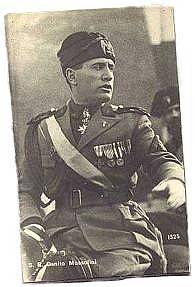
Futurismo
The Futurist movement proclaimed vast change for all the arts and even proposed new life-styles
and a new philosophy. In the general irrationalism of the early 20th century, the Futurists
sought to be the voice of the dynamism of the modern world, praising the new machine age and
glorifying - in varying degrees of velleity - irrational energy, immediate and aggressive energy,
violence, heroism and war. The Futurist writers (Filippo Tommaso Marinetti, Corrado Govoni,
Giovanni Papini, Aldo Palazzeschi) searched for fresh modes of expression that led them to a
new analysis of language, involving a rejection of syntax, with the aim of expressing the "nowness"
of the workings of the psyche through analogy and suggestion.
 Luigi Pirandello (1867-1936)
Luigi Pirandello (1867-1936)
The works of Luigi Pirandello (Nobel Prize for Literature in 1934) originated on the fringes of
Realism but soon took on their own identity by their bitter and paradoxically ironic view of life.
Pirandello focussed on the individual, his anxieties and his desperate attempts to live, to be someone,
which always go unsatisfied and finish in bizarre, often insane gestures. In an indecipherable
universe all appears relative, including the individual, whose discovery of this emptiness and the
insignificance of existence is at the heart of Pirandello's novels (Uno, Nessuno, Centomila;
Il fu Mattia Pascal) and his plays (Sei Personaggi in cerca d'Autore, Enrico IV,
Così è, se vi pare).
 Italo Svevo (1861-1928)
Italo Svevo (1861-1928)
The writings of Italo Svevo (pseudonym of the Triestine writer Ettore Schmitz) are close to
the Pirandellian spirit and his major novels (Una Vita, Senilità, La Coscienza
di Zeno) have an autobiographical background. They are an attempt to reach the innermost recesses of
the mind through psychological analysis rather than straightforward narrative. The typical Svevian character
is a loser, a man incapable of living, except on a mental level, because of the constant
introspection which paralyses his will to act while leaving him fully aware of his sickness and defeat.
 Benedetto Croce (1866-1952)
Benedetto Croce (1866-1952)
The Italian philosopher of highest repute and European eminence in the early 20th century was Benedetto Croce,
who held veritable and long-lasting dominion in Italian culture. He was the first advocate of the individual
as creator, as well as reaffirming spiritual values and seeing history as the progress of freedom. He was also
significant in literary criticism, which he based on firm aesthetic canons: poetry is the expression, in
lyrical and fantastical images, of an emotion which, divesting itself of any subjective immediacy
and through artistic contemplation, becomes a form of divine instinct.
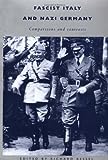 Literature of the Fascist Era
Literature of the Fascist Era
The Fascist dictatorship of the years between the wars condemned Italian intellectualism to a conformist void
through a blocking of free expression by strict censorship. Out of this wasteland there emerged a movement headed by the
review La Ronda. The writers of this movement (Emilio Cecchi, Bruno Barilli and Vincenzo Cardarelli) produced the
"good" (in a purely formal and stylistic sense) literature of the time. Another writer linked to the Ronda group but
distinguished by his greater originality was Riccardo Bacchelli whose work shows the influence of 19th-century
literature. A group of authors who formed the magazine Solaria tried to deal with the same problems as European
literature.
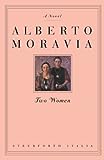 Opposition Literature during the Fascist Era
Opposition Literature during the Fascist Era
The most interesting literary trend during the Fascist era is constituted by the so-called opposition literature, which
focussed on the lesser-known aspects of contemporary Italy. The major authors were Ignazio Silone (whose novels were
appreciated outside Italy but published there only after the war), Corrado Alvaro and, particularly, Alberto Moravia.
Starting with Gli Indifferenti, this last developed an acute psychological analysis of contemporary man and the
crisis of his values. Other noteworthy figures of the time are Piero Gobetti and Antonio Gramsci, whose writings are of
primarily political interest.
 The Hermetic Movement
The Hermetic Movement
The Fascist period saw the confirmation of ermetismo and the principal poets were Giuseppe Ungaretti, Eugenio Montale
(Noble Prize winner in 1975) and, initially, Salvatore Quasimodo. Their objective was to write a "pure" lyric
poetry, free from all narrative or descriptive intent, that would be the immediate and total expression of man and his
situation. The recurring themes are the suffering caused by the crisis of values in modern civilization, the desperate
solitude of man and the disturbing knowledge of the sadness of life. There was also a revolution in their use of
language, with words taking on new and suggestive analogies. One poet to stand apart was Umberto Saba who continued in a
more traditional verse.
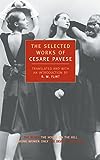 Post-war Literature
Post-war Literature
Italian culture enjoyed a profound renewal with the end of the war and the return to freedom. There was a new vitality
and a neo-Realism which prompted writers to concentrate on their surroundings and describe them freely. The innovators
were Cesare Pavese and Elio Vittorini, "discoverers" of contemporary American literature which they subsequently
developed into an original lyricism and autobiography, always based on the lessons of Realism.
In post-war Italian neo-Realist literature one finds an important "regional" current. Francesco Jovine described the
social differences, the poverty and ignorance and the abuses of elitist privileged in the South (Le Terre di
Sacramento). Beppe Fenoglio portrayed the hard life of the constantly-exploited Piedmontese peasant world (La Malora,
Il partigiano Johnny). Leonardo Sciascia subjected the Sicilian Mafia to acute analysis (Il Giorno della Civetta,
A ciascuno il suo). Pier Paolo Pasolini, poet, novelist and director, wrote profound psycho-sociological studies of
Roman proletarian youth (Ragazzi di vita, Una vita violenta).
The memoirs and autobiographical works of the post-war period were inspired by recent history - the war itself
with the deportations and the Resistance. Primo Levi's Se questo è un uomo describes in realistic detail the brutal
horrors of life in a concentration camp. Carlo Levi's Cristo si è fermato a Eboli depicts the life of a
political internee in the primitive, archaic world of the South. The ordeals of the Russian campaign are amply
portrayed in Mario Rigoni Stern's Il sergente nella neve. Other personal memories of the war period were penned by
Vittorini, Calvino, Fenoglio, Bassani and Pavese. Neo-Realism declined at the beginning of the 1950's and
there emerged a fiction dealing with personal and existential themes. Giorgio Bassani's
Il giardino dei Finzi-Contini gives a careful consideration of psychological questions within the setting of the Fascist
and war period. Giuseppe Tomasi di Lampedusa wrote a highly nuanced portrait of Sicilian society at the time of
Unification in his Il Gattopardo. Carlo Cassola's interest was in the basic experiences of everyday life which he
describes in two novels:Il taglio del bosco and La ragazza di Bube. Vasco Pratolini's
works, Metello and Cronache di poveri amanti, mix psychological themes with realist observation.
 Post-war Poetry
Post-war Poetry
The "Hermetic" tradition had been transformed gradually by the heirs to Ungaretti and Montale into elegant stylistic
experiment which lacked the existential analysis of the original movement. However, fresh horizons appeared in
Italian poetry after the war and there was a new ideological, political and moral commitment on the part of
the poets. Combined with this was the readiness for more open dialogue and movement towards realism which chose
direct and simple language over solitary lyricism. The major poets included Salvatore Quasimodo (Nobel Prize winner in
1959), Mario Luzi, Vittorio Sereni and Alfonso Gatto.
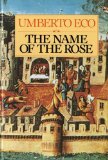 Contemporary Authors
Contemporary Authors
Amongst the many successful writers to emerge in the last few decades, some deserve particular mention: Italo Calvino,
whose philosophical tales have an original and fantastical twist (I nostri antenati); Carlo Emilio Gadda who uses an
anti-traditional language to portray contemporary society; Dino Buzzati (Il deserto dei Tartari) and Elsa Morante
(La storia) who study the psychological workings of man. Umberto Eco's historical mystery novel Il nome della rosa
(In the Name of the Rose) has enjoyed great international success.
This is the closing article of the series: A quick History of Italian Literature












